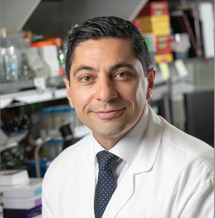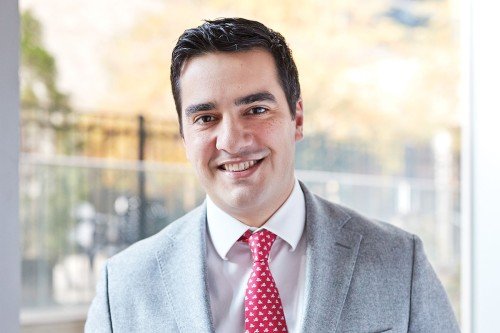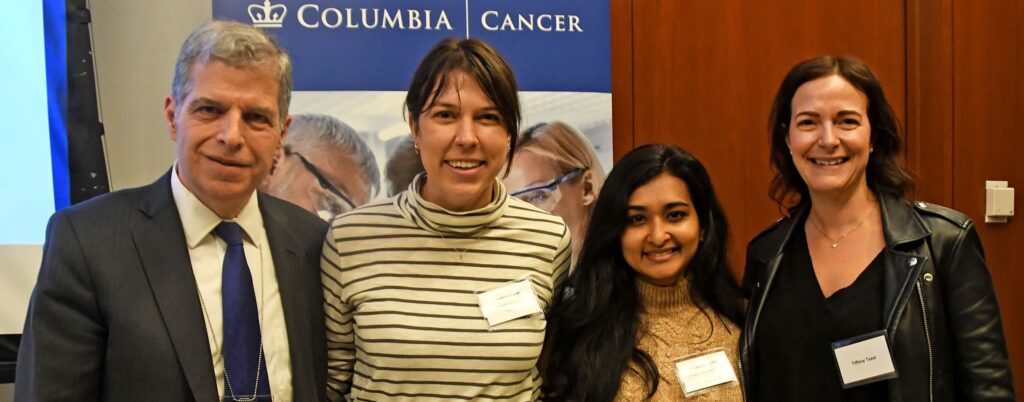1 in 4 cancer patients have incurable rare cancer. We are determined to change that. The future of cancer research is promising, with an integrated approach that leverages findings from both rare and common cancers. Thanks to the guidance and generosity of our donor community, the Jedi Rare Cancer Foundation has assumed a key role in supporting rare cancer research. Insights from rare cancer studies are invaluable, providing a deeper understanding of cancer biology and paving the way for innovative treatments.

Columbia Vagelos College
of Physicians and Surgeons
Jedi Rare Cancer Foundation funds
the work of Dr. Benjamin Izar
Our foundation’s $100,000 donation to Columbia University Herbert Irving Comprehensive Cancer Center supported the research published in Clinical Cancer Research, “Single-cell profiling of sarcomas from archival tissue reveals programs associated with resistance to immune checkpoint blockade” (July 31, 2024) by Columbia University medical scientists, with corresponding author Dr. Benjamin Izar, Columbia Vagelos College of Physicians and Surgeons.
Abstract.
Purpose: Sarcoma encompasses a diverse group of cancers that are typically resistant to current therapies, including immune checkpoint blockade (ICB), and underlying mechanisms are poorly understood. The contexture of sarcomas limits generation of high-quality data using cutting-edge molecular profiling methods, such as single-cell RNA-sequencing, thus hampering progress in understanding these understudied cancers.
Experimental Design: Here, we demonstrate feasibility of producing multimodal single-cell genomics and whole-genome sequencing data from frozen tissues, profiling 75,716 cell transcriptomes of five undifferentiated pleomorphic sarcoma and three intimal sarcoma samples, including paired specimens from two patients treated with ICB.
Results: We find that genomic diversity decreases in patients with response to ICB, and, in unbiased analyses, identify cancer cell programs associated with therapy resistance. Although interactions of tumor-infiltrating T lymphocytes within the tumor ecosystem increase in ICB responders, clonal expansion of CD8+ T cells alone was insufficient to predict drug responses.
Conclusions: This study provides a framework for studying rare tumors and identifies salient and treatment-associated cancer cell intrinsic and tumor microenvironmental features in sarcomas.
To download a PDF of the research article, DOI: 10.1158/1078-0432.CCR-23-2976

Pediatric Hematologist-Oncologist, MSK Kids Memorial Sloan Kettering Cancer Center
Jedis for Survival funds
the work of Dr. Michael Ortiz
Since 2022, the Jedi Rare Cancer Research Foundation’s JEDIs for Survival teams and community of donors have supported Cycle for Survival’s annual fundraiser. We ride to accelerate progress in rare cancer research and lifesaving clinical trials at Memorial Sloan Kettering Cancer Center, bringing new and better treatments to people worldwide Thanks to your incredible contributions, we successfully raised an astounding $258,805 directed to the research of Memorial Sloan Kettering’s MSK Kids pediatric oncologist Dr. Michael Ortiz.
Dr. Julia Glade Bender, Vice Chair for Pediatric Clinical Research at Memorial Sloan-Kettering Cancer Center and a Jedi foundation Medical Advisor, recommended the work of Dr. Michael Ortiz who specializes in caring for young adults and children with rare and high-risk childhood solid tumors, particularly cancers of the kidney and liver including Wilms Tumor.
The Jedi Rare Cancer Foundation’s funds supported the multi-center phase 2 clinical trial of Selinexor in children, adolescents, and adults with advanced solid tumors, specifically evaluating how well Selinexor treats cases of advanced WT, MRT, MPNST, and other rare solid tumors that we believe may benefit from XPO1 inhibition. Selinexor is the first drug developed to block Exportin 1 (XPO1), a protein pump on the surface of the cell’s nucleus, was a unique weakness in several rare and generally childhood-onset solid tumors, including Wilms tumors (WT), malignant rhabdoid tumors (MRT), and malignant peripheral nerve sheath tumors (MPNST). Prior trials did not offer a liquid option for young children; therefore, they were not able to be treated with Selinexor since they could not swallow tablets and tablets could not be crushed. Selinexor has now been studied in several thousand cancer patients, including multiple studies in children with cancer, so a safe dose to administer to children has been established. Plans–contingent upon sufficient funding–are to expand into a multicenter format with four large programs in Atlanta, Boston, Cincinnati, and Los Angeles.
Foundation funds also supported the paper “Advances in the clinical management of high-risk Wilms tumors” published in Pediatric Blood & Cancer (January 10, 2023), of which Dr. Michael Ortiz and Dr. Christa Koenig are first co-authors. To download a PDF of the research article, DOI: 10.1002/pbc.30153
Abstract
Outcomes are excellent for the majority of patients with Wilms tumors (WT). However, there remain WT subgroups for which the survival rate is approximately 50% or lower. Acknowledging that the composition of this high-risk group has changed over time reflecting improvements in therapy, we introduce the authors’ view of the historical
and current approach to the classification and treatment of high-risk WT. For this review, we consider high-risk WT to include patients with newly diagnosed metastatic blastemal-type or diffuse anaplastic histology, those who relapse after having been initially treated with three or more different chemotherapeutics, or those who relapse
more than once. In certain low- or low middle-income settings, socio-economic factors expand the definition of what constitutes a high-risk WT. As conventional therapies are inadequate to cure the majority of high-risk WT patients, advancement of laboratory and early-phase clinical investigations to identify active agents is urgently needed.
2022 Jedi Foundation Awards for Early Career Scientists
The 2022 Jedi Rare Cancer Foundation Research Awards for Early Career Scientists were given to the following awardees for their presentations of original research:

Sara Viragova PhD
For research on inhibitors of retinoid signaling as anti-tumor agents in Adenoid Cystic Carcinoma. Research paper here.
Sminu Bose MD
For research demonstrating the feasibility of implementing single-cell genomics from archival tissue to study sarcoma and propel our understanding of drug resistance. Research paper here.
Alexander Wei MD MS
For research on the clinical and disease characteristics of metastatic uveal melanoma patients who develop symptomatic brain metastases. Research paper here.

